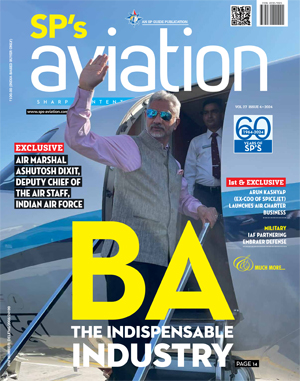INDIAN ARMED FORCES CHIEFS ON
OUR RELENTLESS AND FOCUSED PUBLISHING EFFORTS

SP Guide Publications puts forth a well compiled articulation of issues, pursuits and accomplishments of the Indian Army, over the years

I am confident that SP Guide Publications would continue to inform, inspire and influence.

My compliments to SP Guide Publications for informative and credible reportage on contemporary aerospace issues over the past six decades.
G20: At Least Let Them Talk
The upcoming G20 Summit will hope for a constructive dialogue between member countries to navigate global challenges and bridge the divide in a shifting World Order
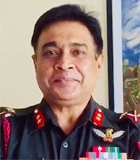 |
The Author is former Chief of Staff of a frontline Corps in the North East and a former helicopter pilot. He earlier headed the China & neighbourhood desk at the Defence Intelligence Agency. He retired in July 2020 and held the appointment of Addl DG Information Systems at Army HQ. |
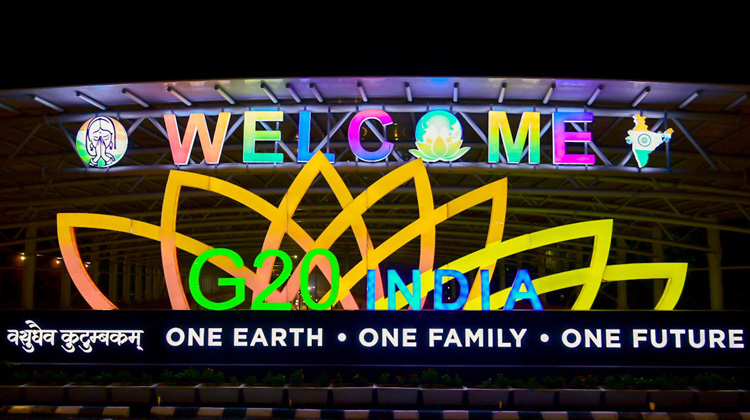
At the height of the Cuban Missile crisis of 1962, President Kennedy and Soviet Chairman Khrushchev exchanged letters conveying their positions and concerns. Between October 22 and December 14, 1962, a total of 22 such letters were exchanged. The arrangement was based on an assurance by Kennedy that they shall not go public on this correspondence and only the closest aides will get to see them. Later, ten letters were declassified in 1973 and the balance in 1992. It is said that this channel of communication saved the world from an assured nuclear catastrophe.
A parallel can be drawn between the current Ukraine crisis and the Cuban Missile Crisis, where diplomacy and communication played pivotal roles in averting a potential catastrophe.
But unlike those times, in the ensuing crisis in Ukraine, President Biden and President Putin haven't spoken even once since Russia launched the special military operations, rolling tanks into the Donbas region on February 24, 2022. Eighteen months on, the cancel culture is only getting sharper. The G7 communiqué after its summit in Hiroshima, for example, offers support to Ukraine "for as long as it takes", riding on the absurd assumption of an eventual partial or total military defeat of Russia. Of more concern is the deployment of Russian nuclear warheads in Belarus and the NATO getting even more openly embroiled in the war by agreeing to supply F-16 fighters to Ukraine. A flare-up can have devastating consequences for the world already in the woods since the 2020 Covid pandemic and the ensuing economic downturn. Yet meaningful strategic communication is seriously missing.
G20 and the Global Power Dynamics
Under the prevailing circumstances, it will be naive to expect any positive outcomes from the G20 summit in New Delhi on September 9-10. Since its inception in 1999 it has largely remained focussed on economic issues, holding two summits in 2009 to tackle the 2008 global meltdown. However, as the summits became an annual fixture and the influence of G7 grouping declined, the G20 started discussing on diverse issues confronting the world such as climate finance, debt sustainability and reform of global financial institutions such as the World Bank and the IMF.
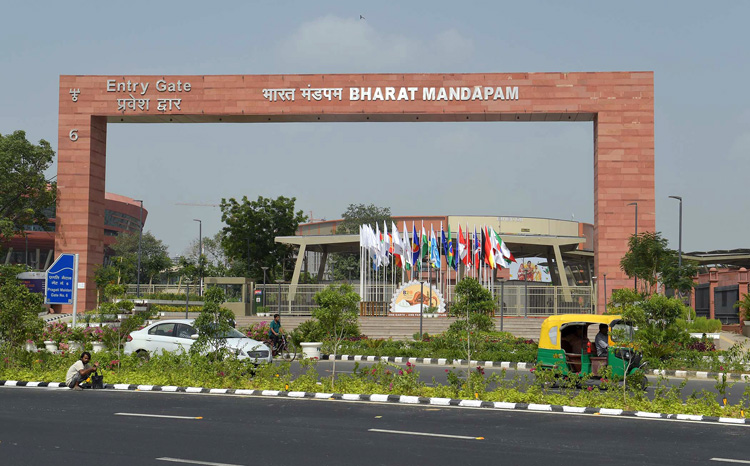
Unlike the G7 which was formed as a response to the oil shock on 1973 and comprise the seven rich economies of those times, the G20 encompasses 19 countries and the EU. It includes the new economic powerhouses China, South Korea and Saudi Arabia and emerging economies such as Argentina, Brazil, Indonesia, Turkey, and India. In a sense, it's a combination of G7 and the BRICS with their respective allies. The 'Rich North'and the 'Global South' under one tent.
The G20, once focused primarily on economic issues, has evolved into a platform for discussing diverse global challenges, including climate, finance, debt, sustainability, and reform of international financial institutions.
The just concluded BRICS summit in Johannesburg decided to admit six new members including energy powerhouses Saudi Arabia, Iran and UAE and work on alternative trade arrangements that has the potential to challenge the might of petrodollar as the reserve currency. The west has resisted any meaningful restructuring or reforms in the World Bank and the IMF frustrating rest of the world, especially those facing serious financial turmoil. The alternative New Development Bank and to some countries, the BRI looks attractive. A gold backed BRICS basket of currencies is in the works. This can have serious if not catastrophic repercussions for the US economy.
The rise the BRICS nations' influence is reshaping global financial institutions, potentially challenging the dominance of traditional Western institutions like the World Bank and IMF.
At the same time, the series of coups in West and Central Africa, eight in number since 2020 has thrown up the most serious challenge to French Neocolonialism in its former African colonies and brought out into open the exploitative Franc CFA currency arrangements it has been using to rub these nations and their strategic minerals. In this arena too, the China-Russia influence is highly visible, including the presence of Wagner in many countries as the anti-West bulwark. A proposal by India to invite the African Union as a full member of G20 like the European Union earlier had some consensus but that also seems to be fading away fast. The stand-off in Niger where the French garrison of 1,500 troops is surrounded by crowds demanding their immediate departure along with that of the French Ambassador is being vehemently contested by France which refuses to recognise the putschists. The situation can turn ugly anytime, engulfing the Sahel region as a whole.
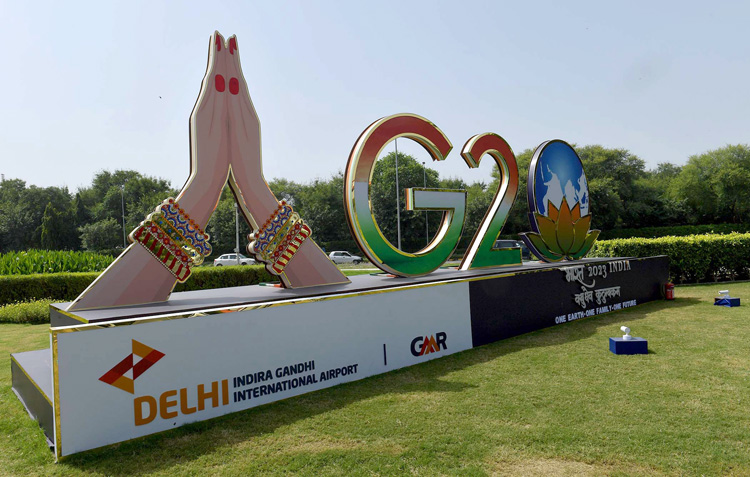
Among the invitees to the New Delhi summit is the President of Nigeria Bola Tinubu who is also the head of ECOWAS that had sent ultimatums to Niger to restore the Presidency of Bazoum or face military action. He is seen as a stooge of the West and there are possibilities of a coup in Nigeria as sentiments run high against military intervention in Niger. Other conditions such as widespread corruption, unemployment and economic hardship for most Nigerians despite its record oil exports primes the situation for such an eventuality.
G20 Challenges and Hopes
The G7 is insisting on a reference to the Ukraine war and its impact on the global economy in the final communique. This is stoutly opposed by Russia and China whose Heads of State are expectedly skipping the summit due to the hostile and unpleasant atmosphere. India hopes that it can persuade the West to avoid mentioning Ukraine conflict since the grouping primarily focusses on economic cooperation. But a debilitating trade US-China trade war unleashed first under President Trump continues to cause serious downturns in China's manufacturing, trade, housing and financial sectors. Combined with its push to usher in the Renminbi as an alternative to the US Dollar for bilateral trade, there is little hope for cooperation. The US activism in the past two years to ramp up the Taiwan crisis and India's active participation in the QUAD add to the difficulties.
The summit climate has been further muddied by the sudden issue of new maps by China that depicts Arunachal Pradesh and Eastern Ladakh as part of China. G20 host India is livid as are other countries such as Indonesia, Malaysia and Vietnam apart from Taiwan who share maritime borders with it. It can be seen as a deliberate attempt to undermine the summit.
New Delhi is geared up as a bride to host the Heads of States at a scale never seen before. Gleaming new conference venues are ready as are five-star hotels to welcome the delegates. All major avenues have been spruced up with new street furniture and thousands of potted plants and flowers. Let's hope that in the heady alluring summit settings, the leaders at least opt to talk to each other and be open to alternatives for the problems that our planet confronts.





